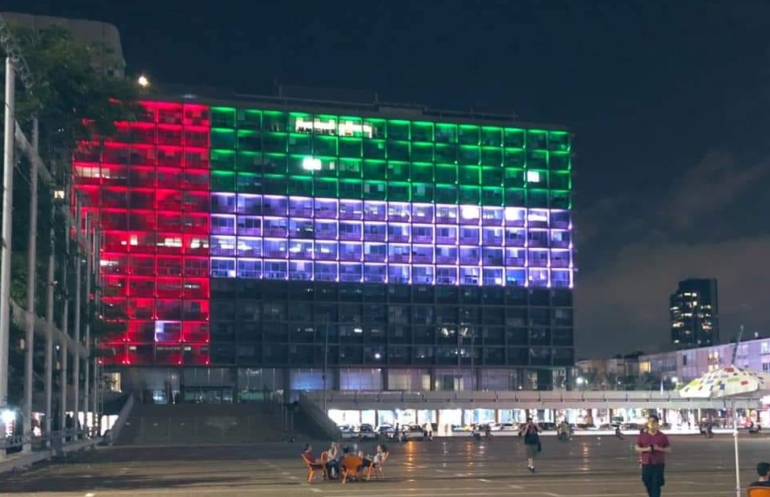Following news of Israel’s upcoming treaty with the United Arab Emirates and speculation that others in the region might soon sign peace agreements with the Jewish state, Arab League Secretary-General Ahmed Aboul-Gheit said over the weekend that Arab-Israeli peace can only be achieved through the establishment of a Palestinian state in the West Bank.
In a statement quoted by the Xinhua news agency on Saturday, Aboul-Gheit called for Israel to accept the “land for peace” principle and surrender the territories won from Jordan during the 1967 Six-Day War.
These territories, commonly referred to as the West Bank since 1950, contain the Jordan Valley, as well as the Samaria and Judea regions – including most of Jerusalem – and constitute the cradle of Jewish civilization. The international community has nevertheless long demanded that Israel surrender these lands in order to partition the country into two separate states.
Aside from being out of touch with not only realities on the ground but also the Jewish people’s connection to the lands he calls for Israel to relinquish, Aboul-Gheit’s comments should send Jerusalem two important messages.
The first is that although it’s not possible to divide the country into two states, Israel really shouldn’t expect to ever be accepted into the region by neighboring states without first solving our conflict with the Palestinians. And because the power dynamics between our two peoples here have already clearly favored Jews for several decades, it’s primarily Israel’s responsibility to make the first move towards building trust and achieving genuine reconciliation through a process of inclusion for Palestinians into the State of Israel.
The second lesson Israel should take from the Arab League statement is that peace with Israel isn’t seen by neighboring states as a value in and of itself but rather as something Israel desires and should therefore be willing to pay for. This is largely the result of Israel often appearing overeager to normalize relations with our neighbors. If peace is what Israel receives, the next question in any negotiation must focus on what Israel is willing to give.
The Hebrew nation possesses an internal drive towards peace and unification with all humankind. But if we truly desire peace with our neighbors, Israelis need to actively stop perpetuating an unhealthy image of desperation. One practical example that illustrates this point is the Tel Aviv municipality lighting up Rabin Square with the United Arab Emirate flag at the first news of a peace agreement.
From the UAE’s perspective, an agreement with Israel isn’t about a desire for peace or recognizing the Jewish people’s place in the region. It’s about obtaining F-35 stealth jets and other advanced arms from the United States, as well as deepening military cooperation in the fight against Iran. Even pretending to accept Israel’s existence in the region is a difficult pill for Abu Dhabi to swallow, but the Emirati leadership has decided to swallow it nonetheless.
Given that even the thought of a giant Israeli flag being projected in Dubai would be laughable, displaying the UAE flag in Tel Aviv is humiliatingly counterproductive from the perspective of pursuing peace. Despite Prime Minister Binyamin Netanyahu’s cynical use of the UAE agreement to boost his own political strength, unity with our neighbors is deeply important to our people. A united Semitic region should be seen as a major current objective of the Jewish liberation struggle and crucial for the broader revolution Israel aspires to bring to the world. But Tel Aviv rushing to show how eager Israel is for friendship in the region isn’t the best way to obtain it.
When engaging with neighbors who value honor and tradition, projecting self-respect is important. So while there’s nothing wrong with internally desiring peace and unity with our neighbors more than those neighbors desire peace and unity with us, expressing this desire outwardly with desperate gestures displays a lack of self-respect that could only serve to weaken the desire for peace within our neighbors.
Tel Aviv should anyway not be the face Israel presents to our cousins in the Semitic region. As one of many “tribes” within Israeli society, Tel Aviv has asserted dominance until now, controlling most of the nation’s institutions and nearly monopolizing Israel’s relations with the outside world. But while the liberal individualism of Tel Aviv might be appropriate for facing west, it’s not necessarily productive for facing east.
When engaging peoples and cultures who value their own histories and identities, Israel should send emissaries who value Jewish history and identity. In fact, the best representatives Israel has for the Semitic region (and many other parts of the world) are the Jews of Samaria and Judea strongest in their identities and most fully living the national story of the Jewish people. Such Jews can best represent Israel and Jewish history to the outside world and project the necessary inner strength to make peace with Israel desirable.
But peace with Israel shouldn’t be offered for free. Just as the Arab League makes demands, so should Jerusalem. The Jewish people must make clear what our values are and offer peace only to those who behave inline with those values. And while it’s true that the State of Israel is still a work in progress with much to correct, especially on the Palestinian front, that correction isn’t likely to come through diplomatic alliances with regimes guilty of war crimes and serial human rights violations.
Israel’s deep desire for peace and ultimate aspiration to become a moral leader on the world stage should make us highly selective when it comes to nations we sign treaties with. Utilitarian agreements with US client regimes should be avoided and any nation entering into an alliance with Israel should understand that this comes with a recognition of our natural place in the Semitic region and a firm commitment to the values and universal vision of our prophets.





